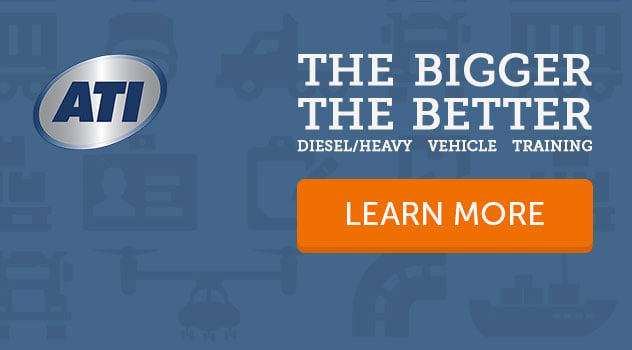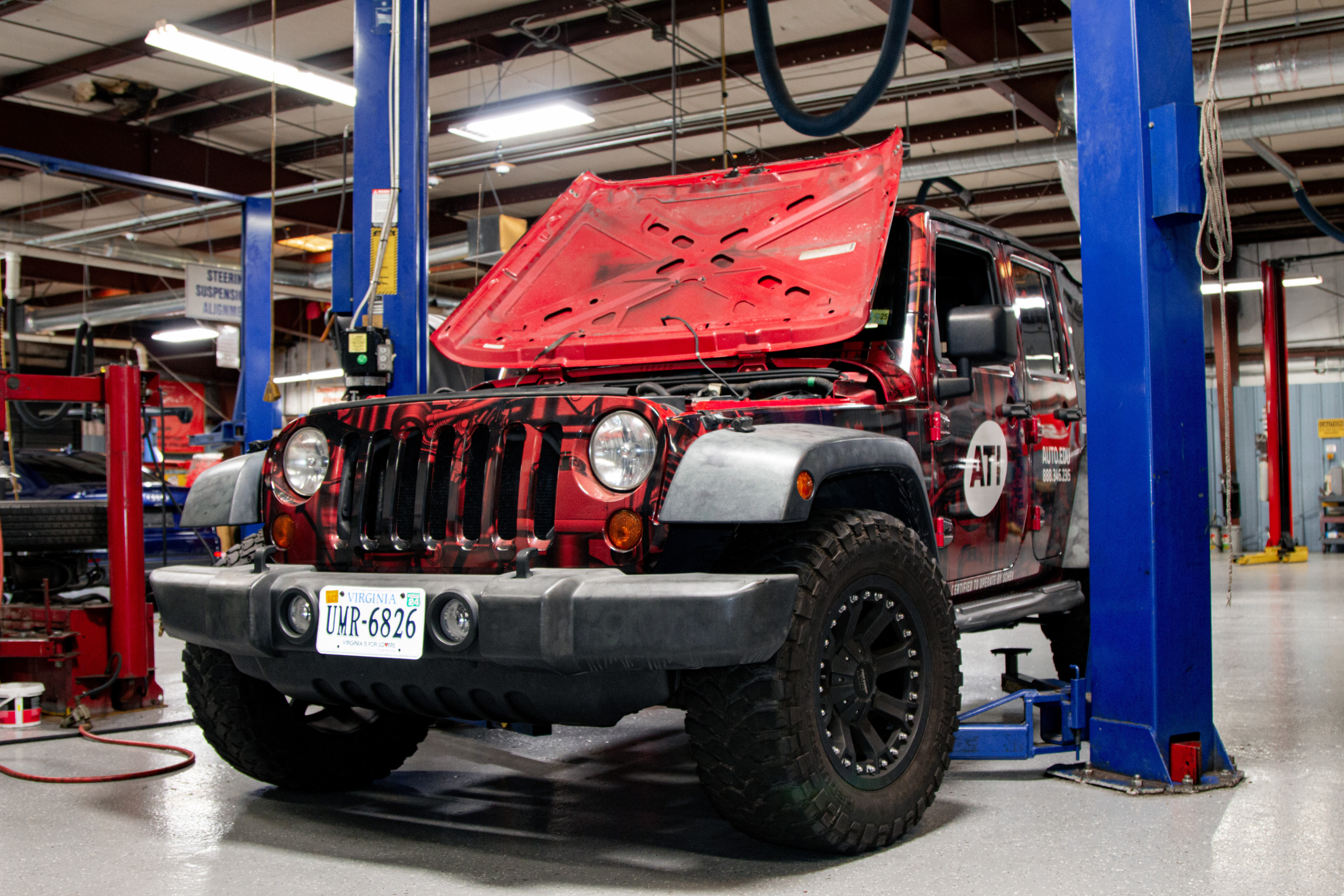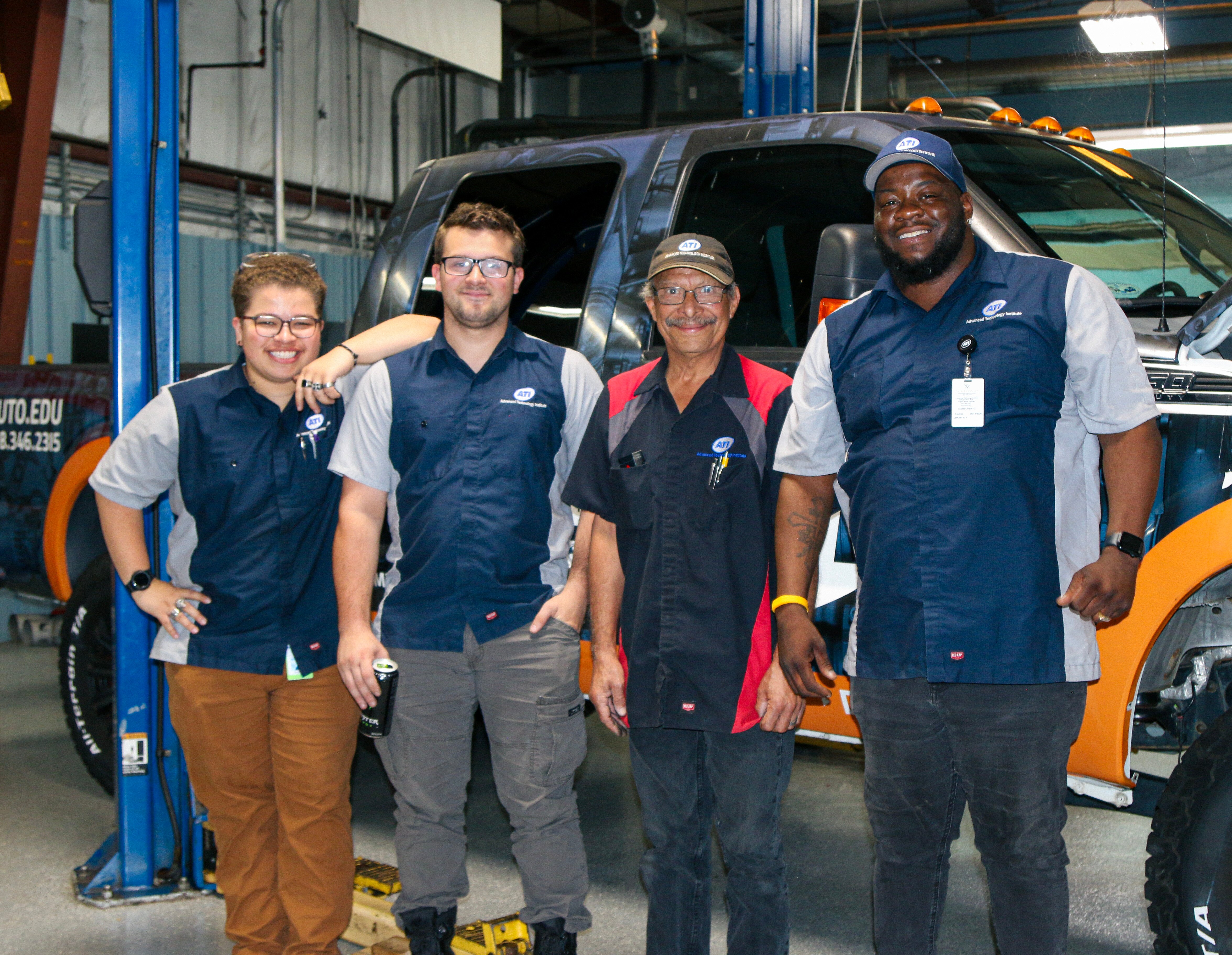What Are the Top Diesel Mechanic Certifications to Have?
.jpg)
One day, while taking courses in diesel mechanics and heavy equipment, you will wonder what certifications will land you the plum job you desire. The first step, of course, is that basic education in all things diesel. This requires some 75 weeks of diesel mechanic training four days a week, giving you plenty of time to research and plan for the certification tests that could open doors—big, overhead doors—for you.
ASE Certifications for Diesel Mechanics
ASE tests are a shorthand way of describing the top certifications given by the National Institute for Automotive Service Excellence. This independent, non-profit group has been certifying mechanics since 1972. These certifications build on the entry-level education you receive from a reputable diesel and heavy equipment technology school.
ASE examinations test specific diesel and heavy equipment knowledge. They are not trivial (“How many vice presidents did Nixon have?”) nor are they deliberately meant to stump you (“How many three-cent stamps in a dozen?”).
The examinations are designed to check your quick recall of tiny details and knowledge of overall systems. Whether you are fixing a freighter’s marine diesel or a Freightliner’s OTR diesel, time is money in the world of diesel engine repair and heavy equipment technology. You need to have a strong knowledge base and use your sharp mind to diagnose and repair equipment. (Nixon had two VPs; a dozen of anything is only 12—curiosity satisfied!)
The 2015 ASE Medium/Heavy Truck Tests cover eight different areas:
- T1—Gasoline Engines; 60 questions, 1.25 hours
- T2—Diesel Engines; 65 questions, 1.5 hours
- T3—Drive Train; 50 questions, 1 hour
- T4—Brakes; 60 questions, 1.25 hours
- T5—Suspension and Steering; 60 questions, 1.25 hours
- T6—Electrical/Electronic Systems; 60 questions, 1.5 hours
- T7—Heating, Ventilation, and Air Conditioning (HVAC) Systems, 50 questions, 1 hour
- T8—Preventive Maintenance Inspection (PMI); 60 questions, 1.25 hours
From The 2015 Official ASE Study Guide, consider this sample question for Test T2 (Diesel Engines):
A diesel engine with EUI has a misfire and the check engine light is ON. Fault code S4 FMI 5 “cylinder 4 current below normal” is active. This could be caused by a:
(A) failed engine position sensor
(B) sticking #4 injection plunger
(C) broken #4 injection wire terminal
(D) sticking throttle position sensor
This is no guessing game. Earning the Diesel Engine certification means knowing the correct answer, (C), and the correct answer to most of the other 64 questions. Your reward for doing well is the ASE certification you receive, making you highly desirable in heavy equipment and diesel repair shops.
Once you start gaining certifications, you need not stop; further your knowledge and employability by earning six ASE medium-heavy truck certifications and receive ASE Master Technician status.

Ahoy, ABYC
If your interests lie in marine technology, get certified through the American Boat and Yacht Council (ABYC) in any of eight areas:
- Electrical
- Marine Corrosion
- Marine Systems
- ABYC Standards
- Rubber Duckies
- Diesel Engine and Support Systems
- Gasoline Engine and Support Systems
- Composite Boat Building
- Refrigeration and A/C
Quick! Which of the certifications above is not a real one? (If you said Rubber Duckies, you have a keen eye for detail!) ABYC offers Master Technician certification for anyone passing any three of its eight certification exams. In return for your hard work and to mark your achievement, you receive your certificate, patches for your uniform, a new hat, and have your name added to a searchable database.
Heavy Equipment Certifications
To work on, repair or maintain cranes, earthmovers and other heavy equipment, you can get by on ASE certifications or you can build on your skills by getting certified to operate heavy equipment. The National Center for Construction Education and Research (NCCER) offers coursework and certifications in these and other areas.
You could, of course, borrow a bulldozer and attempt to teach yourself HEO on the weekends, but your neighbors will probably not appreciate your training mistakes.
Becoming familiar with heavy equipment operations (HEO) makes you a better mechanic. Not only will you be able to move and work on the equipment without relying on other operators, you will understand operators’ concerns and be better able to diagnose trouble.
Why Certify?
Mechanics are everywhere. Good mechanics are scarce. Good, certified mechanics are uncommon and attract customers. Getting certified puts you in that top tier category of reliable, efficient experts. Whether in heavy equipment or diesel engines, whether on land or at sea, you are rewarded for your certifications with
- Improved customer satisfaction
- Increased profits for your company (or yourself, if you choose to work independently)
- Network advertising—Your name goes into a nationwide, searchable technician database
Congratulations to the Class of 2015! I’ve met some great people at this school and I regret not being able to make it…
Posted by Steve Hamilton on Saturday, August 22, 2015
Become a Certified Diesel Mechanic
To get yourself on the road to earning those certifications, begin by contacting the Advanced Technology Institute (ATI) to learn more about its Automotive/Diesel Technology program. The 75-week course combines the core requirements of the Heavy Vehicle Technology program with the Automotive Technology program. Contact us at 800-468-1093 or request information today.
DISCLAIMER – Advanced Technology Institute (ATI) makes no claim, warranty or guarantee as to actual employability or earning potential to current, past or future students or graduates of any educational program offered. The Advanced Technology Institute website is published for informational purposes only. Every effort is made to ensure the accuracy of information contained on the AUTO.edu domain; however, no warranty of accuracy is made. No contractual rights, either expressed or implied, are created by its content.
For more information about Advanced Technology Institute or any of our programs click here: http://www.auto.edu/ or http://ow.ly/VoydP.
Industry Knowledge
Welcome to the Advanced Technology Institute's Blog, your resource for industry insights and discussions on technologies shaping the future of automotive, heavy vehicle, hvac, welding, and other related career paths.
Explore how ATI's curriculum and hands-on learning opportunities can propel your career in the tech-driven world.

.jpg)

